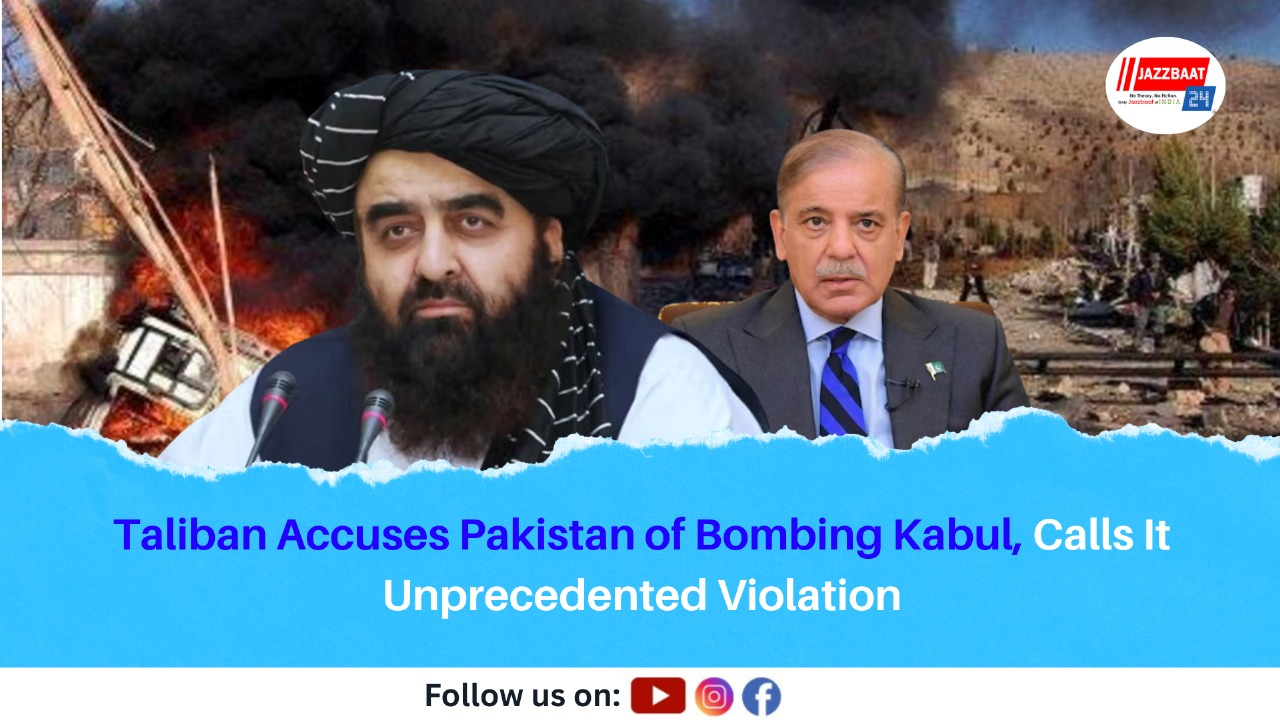The Taliban government has accused Pakistan of carrying out airstrikes on Afghan territory, marking a serious escalation in tensions between the neighboring countries. The allegations came after two separate explosions rocked Afghanistan on Thursday evening, including one in the heart of Kabul near sensitive government installations.
Afghanistan's Defense Ministry issued a strongly worded statement on Friday, condemning what it called an unprecedented and violent violation of the country's airspace. According to Taliban officials, Pakistan bombed a civilian market in the Marghi area of Paktika province near the disputed Durand Line border, while another blast occurred in Kabul's Abdul Haq Square, close to several ministries and the national intelligence agency.
The Taliban called the incidents a provocative act and asserted their right to defend Afghan territory. The Defense Ministry warned that Pakistan would face consequences if such attacks continued, though it did not provide specific details about potential casualties or the extent of damage caused by the alleged strikes.
Pakistan has not directly confirmed or denied carrying out the strikes. When questioned at a press conference in Peshawar, Pakistani Army spokesman Ahmad Sharif avoided giving a direct answer but stated that Afghanistan is being used as a base for operations against Pakistan. He emphasized that necessary measures would continue to be taken to protect Pakistani lives and property.
The timing of these alleged attacks is particularly significant as they occurred while Taliban Foreign Minister Amir Khan Muttaqi was on an official visit to New Delhi. Speaking about the incidents, Muttaqi criticized Pakistan's approach, stating that such issues cannot be resolved through force and that countries with disputes should seek internal resolution through dialogue and diplomacy.
During his visit to India, Muttaqi and External Affairs Minister S Jaishankar jointly identified Pakistan sponsored cross border terrorism as a shared threat to both nations. India appreciated the Taliban's sensitivity toward its security concerns, particularly noting Afghanistan's support following the recent Pahalgam terrorist attack.
In a significant diplomatic development, Muttaqi assured India that Afghanistan would not allow any group to use its territory against Indian interests. He identified ISIS as the main regional threat and emphasized that Kabul is on the frontlines of combating this menace. In response, India announced plans to upgrade its technical mission in Kabul to full embassy status and pledged to continue development projects in Afghanistan.
Pakistan has previously conducted strikes inside Afghan territory, claiming to target militant hideouts. Islamabad has accused the Afghan Taliban of harboring leaders and fighters from the Pakistani Taliban, a separate but allied militant group responsible for a recent surge in violence within Pakistan. The Afghan Taliban have consistently denied these allegations.
The blast in Kabul occurred just before 10 pm local time on Thursday. Security forces immediately sealed off the area, though initial reports suggested no casualties. However, the Defense Ministry's subsequent accusation against Pakistan indicates the Taliban views these incidents as deliberate military actions rather than accidents.
These developments highlight the deteriorating relationship between Afghanistan and Pakistan, even as both countries navigate complex regional security dynamics. The situation remains tense as Afghanistan demands accountability while Pakistan maintains its stance on protecting its citizens from cross border militant threats.
